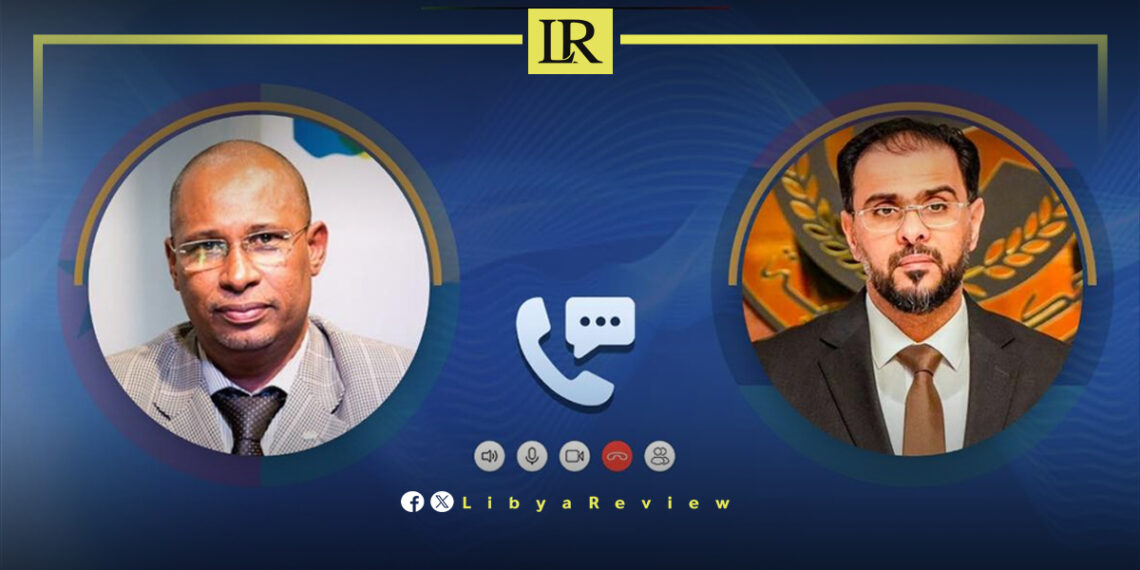Libyan Prime Minister Osama Hammad, appointed by the House of Representatives, held a phone conversation today, Tuesday, with the Prime Minister of Guinea-Bissau, Rui Duarte de Barros, to discuss ways to strengthen bilateral relations between the two nations.
According to a statement by the Government-designate on its Facebook page, the call included an exchange of views on enhancing bilateral ties and exploring joint cooperation in areas of mutual interest.
On July 30, the former advisor to the Prime Minister of Guinea-Bissau, Mohamed Jamil Derba, visited Benghazi and met with the Minister of African Affairs of the Government-designate, Issa Abdul-Majid. The meeting focused on strengthening bilateral relations and exchanging expertise across various sectors, according to an official announcement.
Derba also delivered a verbal message from former Guinean Prime Minister Geraldo Martins to Prime Minister Osama Hammad. The message emphasized the importance of boosting cooperation between the two countries in several projects aimed at achieving shared strategic goals.
Libya has been in chaos since a NATO-backed uprising toppled longtime leader Muammar Gaddafi in 2011. For years, the county has been split between rival administrations.
Libya’s economy, heavily reliant on oil, has suffered due to the ongoing conflict. The instability has led to fluctuations in oil production and prices, impacting the global oil market and Libya’s economy.
The conflict has led to a significant humanitarian crisis in Libya, with thousands of people killed, and many more displaced. Migrants and refugees using Libya as a transit point to Europe have also faced dire conditions.
The planned elections for December 2021 were delayed due to disagreements over election laws and the eligibility of certain candidates. This delay has raised concerns about the feasibility of a peaceful political transition.
Despite the ceasefire, security remains a significant concern with sporadic fighting and the presence of mercenaries and foreign fighters. The unification of the military and the removal of foreign forces are crucial challenges.


